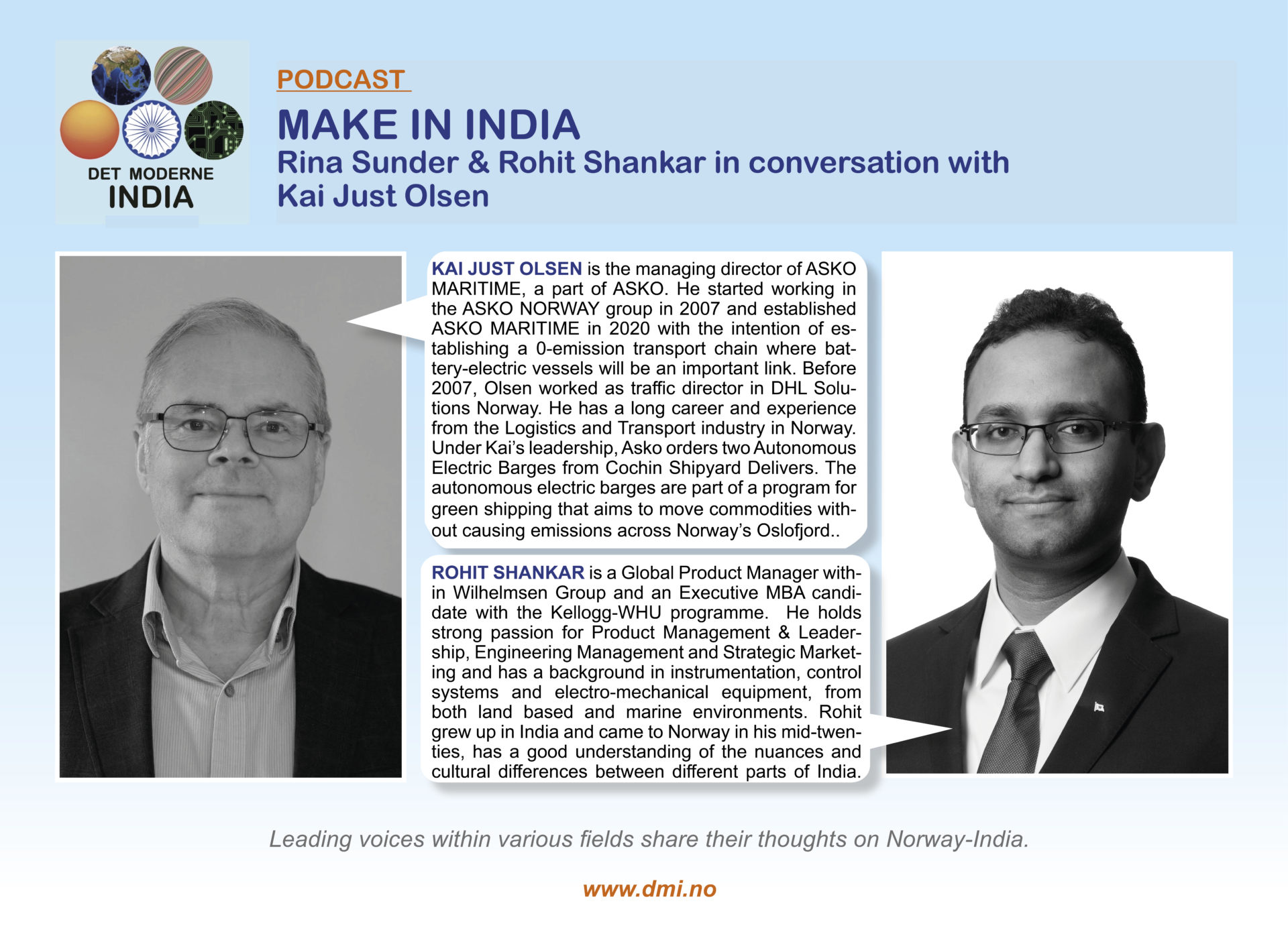
The Make in India initiative was launched by Prime Minister Modi in 2014. The aim is to make and encourage companies to develop, manufacture, and assemble products made in India and incentivize dedicated investments into manufacturing.
Four weeks back, Cochin Shipyard sent two Autonomous Electric Barges from India to Norway. This made headlines in media in Norway and India. Of course we had to invite Kai Just Olsen to the podcast! Kai Just Olsen is the managing director of ASKO MARITIME, which is part of ASKO group. Under Kai's leadership, Asko ordered two Autonomous Electric Barges from Cochin Shipyard. The autonomous electric barges are part of a program for green shipping that aims to move commodities without causing emissions across Norway's Oslofjord.
The founder of Det Moderne India, Rina Sunder, had with her a co-host for this podcast: Rohit Shankar. Rohit is Global Product Manager within Wilhelmsen Group and is an Executive MBA candidate with the Kellogg-WHU programme. Rina and Rohit asked Kai the following:
- What made Cochin Shipyard appeal to you and synergize with ASKO Maritime's autonomous and sustainable shipping ambitions? RS
- What does it mean to be a fully autonomous vessel, what are the stages of autonomy in ships and ships operations, who are the anticipated key players in a lifecycle of an autonomous vessel from ship building through its operational life?
- These vessels can transport 16 fully loaded standard EU trailers in one go across the fjords. I read that this is path-breaking revolutionary project. Why?
- The vessels are designed by Naval Dynamics Norway, using Kongsberg Maritime systems, with detailed engineering to be carried out by CSLO. How did the Norwegians and Indians collaborate? Are there any specific and interesting differences in working cultures between the two countries that you observed?
- How can Norway and India learn from each other's strengths and shortcomings to bridge the gap in working cultures for better efficiency, improved productivity, and closer collaboration.
- How are other countries faring with regard to Autonomous Shipping, and how is the competitive landscape developing for this segment?
- How do you see the medium-to-long term market for autonomous shipping? In case of a growth market, what steps do you think Indian Shipyards and Government should take to enter and become a skilled, competitive, and scalable player in the market of autonomous shipping?
- If this market grows, on what frontiers do you think India will need to innovate, improve, and improvise to support Norway and India's ambitions in the field of autonomous shipping.
- How does the term ESG (or sustainability) tie into the concept of autonomous shipping?
Listen to the conversation here: